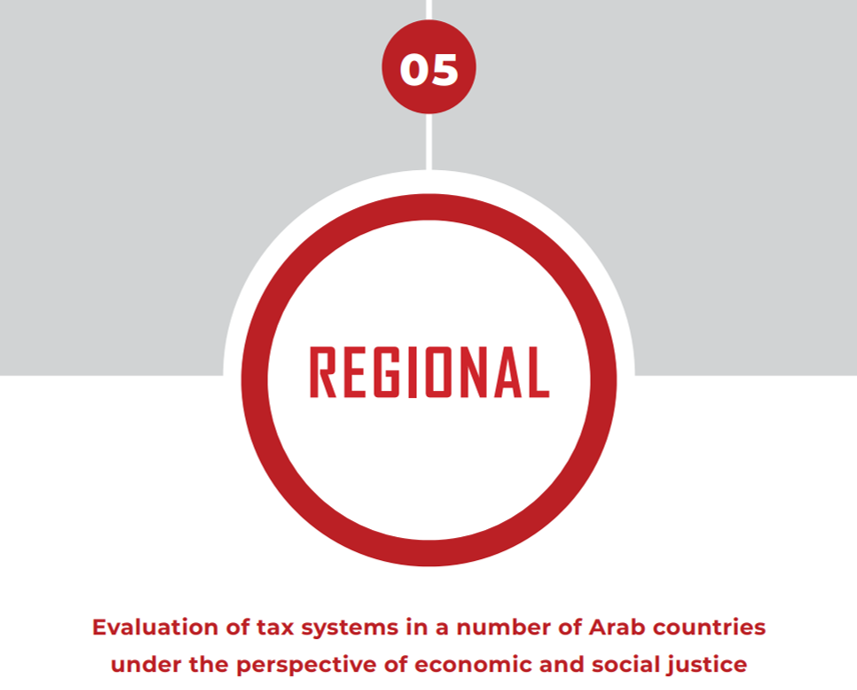

General framework
The popular protests that began in Tunisia in December 2010 and spread in many parts of the Arab region were not only an objection to political tyranny, but also to unemployment, high prices and corruption. The term “corruption”, which is the most widely used term in the Arab Spring, reflects the core of the problem in the Arab region: “the absence of economic and social justice”. The slogan that was uttered in Tahrir Square in Cairo and in other Arab cities, “life, freedom, social justice” reflects in a nutshell the aspirations of Arab peoples, which were not limited to political and cultural freedoms – a prerequisite for democracy – but also to improved living conditions by providing decent work and a social protection framework in the face of poverty, unemployment and disease.
The Arab region has suffered for decades from the triad of poverty - instability - injustice. If the Arab region is generally less impoverished than South or East Asia and Central and East Africa because of oil resources in the first place, some countries such as Yemen, Mauritania and Sudan are on the list of poverty rates, as well as rural areas and city belts in countries such as Morocco, Egypt, Syria, Jordan, Palestine and Lebanon. Poverty varies from one Arab country to another and inside each country from one region to another. Poverty is associated with social instability that engenders social marginalization, which is manifested in two forms:
first, expanding the ranks of workers in the informal or unstructured economy, whose workers do not have the most basic rights and health and social guarantees. It is an economy that absorbs a very important proportion of workers in most - if not all - Arab countries 92; second, the prevalence of unemployment, in which the Arab region holds the world record in general, especially youth and women unemployment, with a distinct rise in the unemployment of graduates of higher education 93 .
Under this perspective, social injustice, which is the highest in the Arab region in terms of inequality in incomes, wealth and opportunities, has created a sharp sense of injustice among the poorest and most unstable segments of the society, even in most of the middle classes who have to struggle to cope with the continuous rise of prices, while the upper classes of the society are wealthy and spend extravagantly, which is an insult to low income people and even to the middle income category. According to Gini Coefficient to measure inequality 94 , Arab countries reached a relatively high average of 33% with a difference between these countries. This rate increases in Jordan and Palestine to 36% but is only 30% in Egypt and Lebanon
Click here for the full report: Evaluation of tax systems in a number of Arab countries under the perspective of economic and social justice
This is a part of "Report on Taxes and Social Justice in the Arab Countries" studies
Recent publications

